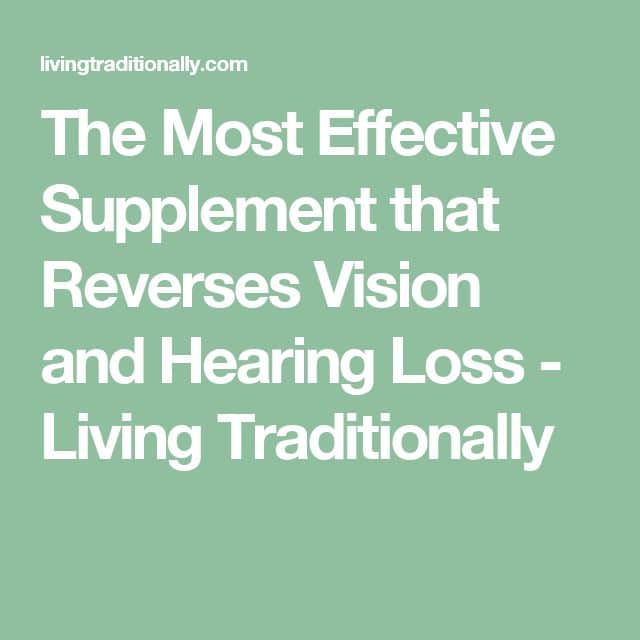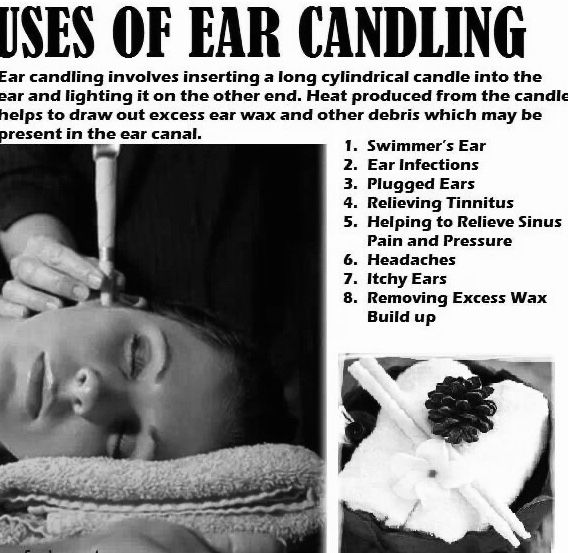How Sinusitis Affects Your Hearing
Sinusitis is an infection in some part of the sinuses. A few of the symptoms associated with sinusitis are sore throat, fever, facial soreness, dizziness, pain and pressure on your cheeks and forehead, and a stuffed nasal passage. As if these symptoms are not bothersome enough, some people also experience hearing loss.
What Happen When You Have Sinusitis When you have an infection in your sinuses, they become swollen and inflamed. All the empty spaces that can be found in your bones become inflamed, and your glands begin developing more mucus than usual. All the swelling and inflammation makes it difficult to drain the mucus, which contributes to the pressure and stuffy feelings. Breathing can be tough when you are suffering from a sinus infection, and people may overmedicate before consulting with a doctor.
Your sinuses are located close to your ear canal, and when they become congested, swollen, and clogged, these issues can affect your ears hearing function. Your Eustachian tubes, which connect the middle of your ear to your throat, will become clogged, preventing fluid from moving through. Some symptoms to watch out for are:
How to Cope Addressing your concerns with an ENT specialist is important. There are also things you can do at home to help you cope. A few include:
Why Is There Hearing Loss Due To Sinusitis
Sinusitis is defined as the swelling, inflammation of the paranasal sinuses. Para-nasal sinuses are the spaces that are located in the bones, near the nose and between the eyes. Due to the inflammation, the sinuses produce more mucus than normal that can block the nasal passages. The excessive mucus accumulated can prevent the sinuses from draining properly. Now this accumulated mucus can get infected due to the following factors-
- Inhaling irritants such as pollen, dust or smoke
The sinuses are hollow spaces that are located very near to the ear canal. Hence, due to sinusitis, the ear can also become congested. The Eustachian tube that runs from the middle ear to the back of the throat can also become inflamed due to the sinuses. The tube controls the pressure inside the ear so due to inflammation, it cannot function properly. Therefore, there is excessive pressure buildup inside the ear that results in pain and hearing loss.
ENT experts explain that it is better to treat this condition soon as it can cause other symptoms such as ringing inside the ears, sense of loss of balance, bleeding or perforation of the eardrum. Fortunately, this is a treatable condition which means once the sinusitis is cleared up, the mucus can be drained and the tube can release out excess pressure.
Sinus Issues: Experiencing Hearing Loss After A Sinus Infection
There is nothing quite as annoying as having to deal with blocked sinuses. Usually, a sinus infection or blockage is a result of allergies or a cold and it can be a very painful experience. What many people dont realize is that sinus problems can affect your ears and in turn, your hearing. Thats because sinus congestion, more often than not, results in a swollen Eustachian tube, the inner ears pressure gauge. All of that stuffiness is the cause of the pressure and pain since your ears and sinuses are interconnected. And, at times, with a sinus infection, hearing loss occurs.
The Link Between Sinus Infection And Hearing Loss
Since the ear canal is so close to the sinuses, Eustachian tube blockage can result in sinus congestion. Between your throat and your inner ear, there is a little section that acts as a pressure gauge to maintain optimal ear pressure. However, when that part becomes swollen due to inflammation, fluid collects in that area and that produces painful eardrum pressure. Because of this, you may experience hearing loss after a sinus infection, though it is usually temporary and clears up after fluids leave the Eustachian tube.
What Can Happen If I Dont Seek Help?
If left untreated, an ear infection may cause permanent damage to the middle ear, resulting in rupturing or bleeding in the eardrum. But, if you treat a sinus infection before it spreads to the Eustachian tube and eardrum, you can curb hearing disruptions or sinus-related ear concerns.
Also Check: Sinus Graft For Dental Implants
How Chronic Sinusitis Affects Vision
Basically, sinusitis is called to sinus cavities infection that exists in head. Some areas of sinus are quite close to the eyes. Being near to sinus area, when sinusitis remains for longer period, it starts pressurizing the eyes by which vision issues occur. The constant pain and affect of sinusitis can sometimes cause blurred vision or vision impairment. Although, this problem occurs very rarely, yet it happens for sure. Significant number patients of sinusitis do complaint for blurred vision. As the sinusitis lasts, the problem of blurred vision also lasts.
Recommended Reading: Beltone Hearmax Pairing
Treatment Of Ear Nose & Throat Problem

To completely relieve the pain, try more than one remedy to help drain and keep your sinuses clear. If congestion continues consider seeing an ENT Specialists. We provide quality medical care and can help treat sinus infections, ear pain and more. Schedule an appointment with ENT Specialists today.
You Might Also Enjoy…
Also Check: How To Quickly Get Rid Of Sinus Pressure
What Is The Connection Between Sinus Infections And Hearing Loss
Sinus infections and the sensation of blocked sinuses are nothing short of annoying. Sinus infections, also known as sinusitis, can cause a range of symptoms including headaches, fever, fatigue, cough, tooth pain, and facial pain. Sinus infections also affect your ears and your hearing.
In this post, nasal and sinus specialist Dr. Conrad McCutcheon explores the connection between sinus infections and hearing loss. We treat both conditions here at Memorial Village ENT in Houston, Texas.
Recommended Reading: What Is Good For Sinus Headache
Are Sinus Infections Viral
Sinusitis can occur due to a viral infection. If excess mucus develops and cannot exit the body due to a blockage or nasal inflammation, it can cause a sinus infection. You may start with a viral cold that doesnt clear up and then turns into a bacterial infection. Allergies can also lead to sinus infections, as can a deviated septum. When bacteria grows in the sinuses, it is a bacterial infection.
According to the Centers for Disease Control, sinusitis is typically caused by a virus, and less commonly caused by bacteria.
You May Like: How To Stay In Sinus Rhythm After Cardioversion
Causes Of Nasal Congestion
Nasal congestion can result from various reasons, including the following:
- Allergies such as hay fever
- Tumors in the nasal cavity
- Enlargement of adenoid tissue
- Congenital nasal narrowing in newborns
- Otitis media and asthma also cause nasal congestion, which can cause sleep disturbances, sleep apnea, pressure in the ear, and/or temporary hearing loss
While these are the common reasons behind a stuffy nose, it is recommended to visit your doctor for the correct diagnosis.
Can Allergies Cause Tinnitus And Hearing Loss
Can allergies cause tinnitus? Can a sinus infection result in hearing loss? What is the treatment for allergy induced Tinnitus? Do allergies cause a Tinnitus spike among people who are already suffering from Tinnitus? We explore the connection between allergies and tinnitus and also hearing loss, below.
Read Also: Does Sinus Infection Cause Ear Ringing
If I Keep Getting Sinus Infections How Can I Protect My Ears
Good hygiene and self-care are always the first steps in protecting yourself. Make sure to say well hydrated to keep your mucous membranes in your sinuses healthy and resistant to irritation.
If you have significant allergies, try to avoid triggers such as dust, animal fur or trees that can cause hay fever or an allergic response. Avoiding other irritants such as cigarette smoke can help reduce the risk of sinusitis.
Finally, if you do suffer from chronic or recurrent sinusitis despite taking appropriate care, come and speak to one of our audiologists in store. They will be able to assess your hearing and recommend hearing aids if required or signpost you to further services.
To learn more about your hearing and hearing loss, visit our hearing loss hub.
References
1. Hung SH, Lin HC, Kao LT, Wu CS, Chung SD. Sudden sensorineural hearing loss is associated with chronic rhinosinusitis: population-based study. J Laryngol Otol. 2016 130:521-525. doi:10.1017/S0022215116000906
How Do I Prevent Sinus Infections From Spreading To My Ear
There isnt any special solution to stop an infection from reaching your ear the best thing to do is to see your GP for a proper investigation and treatment. If you have repeat, long term sinus infections then your risk of developing associated hearing loss will increase.
Permanent hearing damage is rare, but letting an infection develop and worsen over time could lead to damage to structures in your inner ear. There are also known cases of sudden sensorineural hearing loss as a result of chronic sinusitis.1 This is why regularly having your hearing reviewed is so important.
Recommended Reading: What Antibiotics Will Treat A Sinus Infection
How To Unclog The Ear From A Sinus Infection
Sinus induced hearing loss is often cured once the infection is gone. But, some people will suffer from permanent hearing loss. This is especially true if the infection is severe or left untreated. There are some treatment options available. One of these procedures is a balloon sinuplasty. This will help to unblock the ears, giving you some relief from your hearing loss. There are also some medications that may help reduce the ringing in the ears. This can help if you suffer from tinnitus after a sinus infection.
If the hearing loss is permanent, you may have to look into getting hearing aids. While many people do not like the idea of getting hearing aids, they have come a long way. Hearing aids of today are small and discreet. They also work very well. They use back-up technology that you can add on your phone.
Recommended Reading: Natural Ways To Treat Allergies And Sinus
What You Can Do To Prevent Hearing Loss

Your first course of action to prevent hearing loss associated with sinus infections is to target the sinus infection. Dr. McCutcheon treats sinus infections on an individual basis, taking into account what type of sinus infection you have. Your treatment plan may include:
- Medications, including antibiotics, steroids, and anti-inflammatory medication
If youre struggling with chronic sinusitis and conservative treatments arent enough to alleviate your symptoms, balloon sinuplasty may be right for you.
With the right treatment, you can stop a bacterial infection in its tracks, and your hearing should improve shortly thereafter.
Dont let an untreated sinus infection compromise your hearing. Dr. McCutcheon applies his experience with sinus infections and hearing loss to ensure you a speedy recovery. Schedule an appointment at Memorial Village ENT by calling 281-822-3777 or by requesting an appointment online today.
You Might Also Enjoyâ¦
Also Check: How To Ward Off A Sinus Infection
Can A Blocked Nose Cause Hearing Loss
A blocked nose can make life miserable. Added to a plugged nose, hearing loss can make the problem worse. But why does it happen that whenever there is an episode of a stuffy nose, your hearing also gets affected? Have you given thought about that? Read this blog to know the relation between the blocked nose and hearing loss.
Nasal congestion can result from various reasons, including the following:
- Allergies such as hay fever
- Tumors in the nasal cavity
- Enlargement of adenoid tissue
- Congenital nasal narrowing in newborns
- Otitis media and asthma also cause nasal congestion, which can cause sleep disturbances, sleep apnea, pressure in the ear, and/or temporary hearing loss
While these are the common reasons behind a stuffy nose, it is recommended to visit your doctor for the correct diagnosis.
Dont Miss: Can Sinus Polyps Cause Migraines
How Can Sinus Infections Spread To The Ear
Your airways and sinuses form complex pathways, one of which is known as the Eustachian tube. This small passageway connects your middle ear, nose and sinuses. Its function is to equalise pressure in your ear but this can leave you open to infections in the sinuses which could eventually affect the tube and ear.
When an infection produces a lot of mucus and fluid, the Eustachian tube can become blocked, known as Eeustachian tube dysfunction.
Recommended Reading: Tumor In Sinus Cavity Symptoms
Infection Of The Bone
Both recurrent acute sinusitis and chronic sinus infections can spread to the bone surrounding the sinuses. This infection can enter blood vessels and send bacteria to the brain or other parts of the body. Infected bone is very difficult to cure. Treatment is generally long-term intravenous antibiotics.
by Anderson Audiology | Aug 15, 2018 | Hearing Loss Articles
An ear infection is the well-known name, but its medically referred to as otitis media or AOM. These ear infections can have an affect on children as well as adults, particularly after a cold or sinus infection. If you have a bad tooth, that can also lead to an ear infection.
Hearing loss is one of the primary symptoms of an infection in the middle ear. But is it going to last forever? You might not recognize it but there is no simple answer. Ear infections have a lot going on. There is damage which can be caused that you need to understand and also how that injury can affect your hearing.
Recommended Reading: What Antibiotics Can Be Used For Tooth Infection
Sinus Congestion And Hearing Loss
Chances are that if youre wondering, Can a sinus infection cause hearing loss? youve already got an inkling of what might be behind this symptom. The most common form of hearing loss due to a sinus infection is caused by severe congestion and sinus blockage specifically, sinus blockage of the Eustachian tube, a small section of your ear that helps regulate pressure.
Fluid in the Eustachian tube can cause muffled hearing. Many people equate the sensation to that of descending in an airplane, being underwater, or even having earplugs in.
Changes in hearing such can be distressing. In general, its wise to visit a doctor as soon as you notice any difference in the quality of your hearing, but to have hearing loss coupled with a sinus infection may indicate that your infection has become more severe, and thus definitely warrants a visit to your ENT.
You May Like: Do Your Teeth Hurt With Sinus Infection
What Can I Do To Treat My Sinus Infection Until I See My Doctor
Thankfully, the medical community continues to study Sinusitis and its effects. Doctors offer patients treatments and solutions that feature a combination of remedies and therapies. Some include surgical and medical treatments, sinus irrigation, steroid nasal sprays, oral corticosteroids, and more.
ENT doctorsor otolaryngologists can see patients who are suffering from Sinusitis and tailor therapy that is effective and significant in reducing sinus symptoms. While you wait to see your doctor, you may consider investing in a humidifier. Moisture can provide significant relief from Sinusitis. You may also find that nasal sprays can help in alleviating the pressure that you feel in your sinus cavity. Many individuals find that a warm compress or washcloth placed on the face can help to relieve sinus pressure too. Another way to help with your Sinusitis is to try to keep your head elevated as much as possible. While Sinusitis can cause fatigue you may want to lie down. However, its important to keep your head in an elevated position during your rest.
Does It Cause Hearing Loss
Since our sinuses are found close to our ear canal, when they start getting clogged, swollen, and congested due to an infection, it is a common occurrence to start losing some hearing function.
As a result, our Eustachian tubes start to get clogged, therefore, preventing any fluids from passing through. Some common symptoms you should watch out for include:
- Pressure or pain in the eardrum
- Partial hearing loss
- Hearing sounds as if youre underwater or going through a tunnel
Recommended Reading: Can A Sinus Infection Delay Your Period
How Sinus Infection Affects Your Hearing
Jun 4, 2021 | Hearing
Do you know that your nose and ears are connected? Your nasal sinus cavity connects to your eardrum, which can lead to hearing loss when you have acute or chronic sinusitis.
If you or someone you know is suffering from sinusitis, the best thing you can do is treat it before it causes irreversible damage, particularly in children.
Read Also: Ears Pop When Swallowing Sinus Infection
Reasons You May Have Clogged Ear

Clogged ears can cause great discomfort and pain, and ultimately have a negative effect on your hearing. The clogged ear feeling can be a distraction to day-to-day life, and in this blog post, we explain:
- What is a clogged ear?
- What causes ears to feel clogged?
- How you can manage the condition.
At Hearing Direct, you will also find a number of solutions to manage and treat clogged ear wax.
Also Check: Water In Speakers Iphone 5
You May Like: Best Meds For Sinus Relief
Hearing Loss And Sinus Congestion
Hearing loss can be often caused by sinus blockages and severe congestion. This is especially true if the Eustachian tube has a clog. This is because it helps to regulate the pressure in your sinuses. When you have fluid in the Eustachian tube, it can cause muffled hearing. Many people report that it is like having ear plugs in, or being underwater.
If you have any changes in hearing, it is a good idea to visit your doctor or hearing care specialist. If you have hearing loss with a sinus infection, it can be a sign that your infection has become more severe.
You May Like: What Helps Sinus Pressure Headache